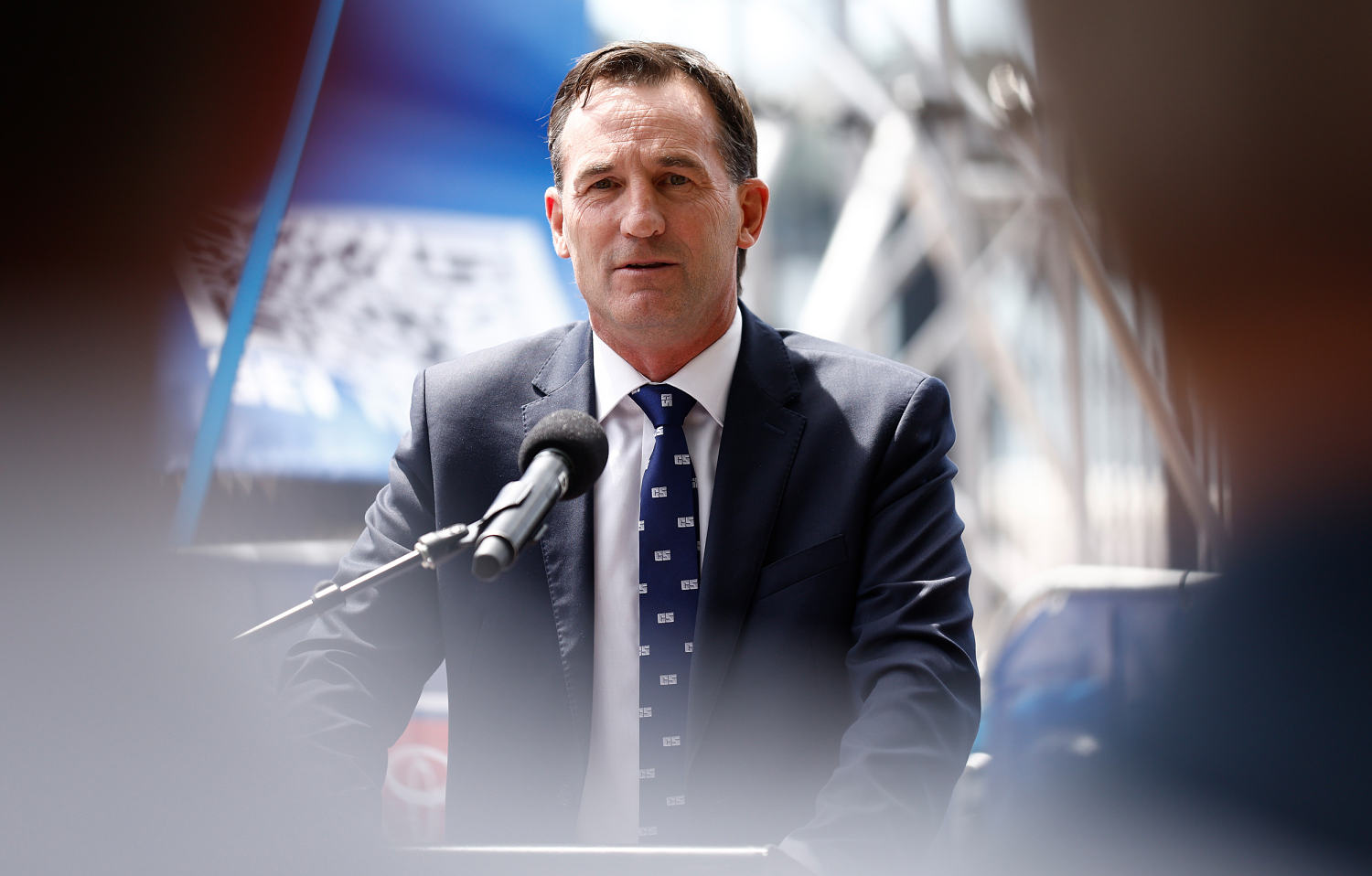Australian rules football organizers unapologetic for stance on illicit drug testing

The governing body for Australian rules football was aware of players undertaking screening for illicit substances to avoid detection in game-related doping tests and its chief executive on Wednesday said he was “unapologetic” for it.
Federal lawmaker Andrew Wilkie told Parliament of allegations made by the Melbourne Demons’ former club doctor and president that players had faked injuries to skip games and sports anti-doping tests following the screenings for illicit substances including cocaine.
Australian rules is a contact game played by teams of 18 on an oval-shaped field and is similar in some respects to Ireland’s Gaelic football, with players permitted to handle and kick the ball. There is no serious international competition.
The Australian Football League pulls the biggest crowds and TV audiences for sports in Australia.
Wilkie said the “off the books” testing results were never shared with the World Anti-Doping Agency or Sports Integrity Australia.
AFL chief executive Andrew Dillion on Wednesday said the welfare of players was the main consideration for the league.
“The private medical information of the players is private medical information and that’s what we prioritize above anything else,” he said. “What we’re talking about is a doctor and the player who’s their patient and private medical information of that player … and it’s that player’s decision to disclose or not.”
Dillon said the tests Wilkie was referring to related to a “small handful of the 1,300 athletes” involved in the top-flight men’s and women’s leagues.
He said detailing the number of players who tested positive for illicit drugs, including cocaine, wasn’t in the public interest.
The AFL does have an anti-doping code specific to the Australian sport and a “three-strikes” approach under its illicit drugs policy, which Dillon said is under review.
“We are unapologetic about club and AFL doctors taking the correct steps to ensure that any player who they believe has an illicit substance in their system does not take part in any AFL match and that doctor-patient confidentially is upheld and respected,” he said. “The medical interests and welfare of players is a priority for the AFL given everything we know about the risks facing young people generally and those who play our game in particular.”
Dillon said urine tests were part of the illicit drugs policy and if results indicated those substances in a player’s sample, a club doctor would take steps to prevent that player either playing a match or training.
The AFL’s illicit drugs policy was implemented in 2005 and Dillon said it was being reviewed, with input from player unions.




